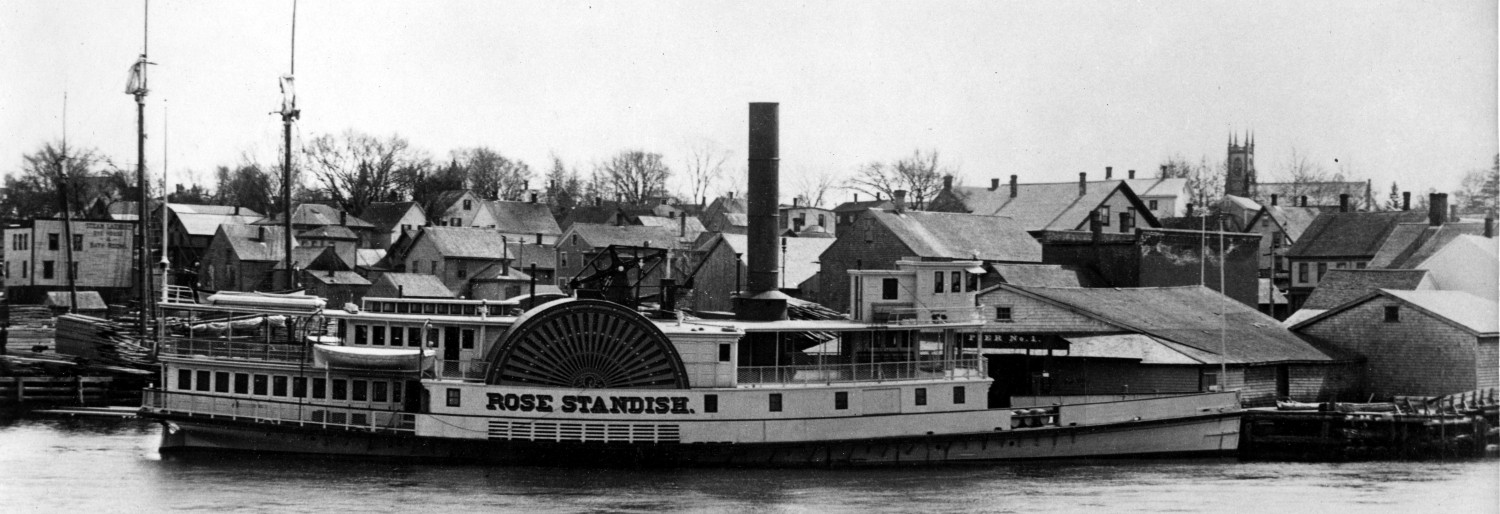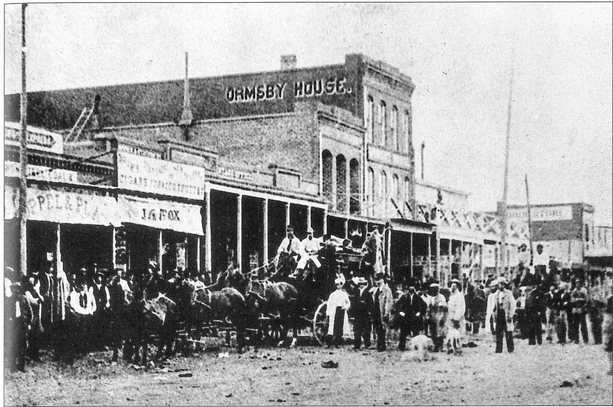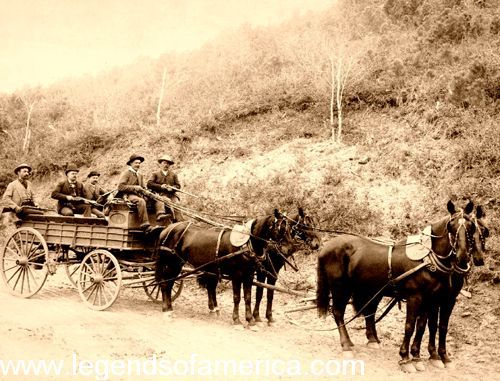Many who Calais claims as its own have made a mark in the wide world. They have founded large cities (Portland, Oregon by Francis Pettigrove), served as Abraham Lincoln’s representative at the Hague during the Civil War (James Sheppard Pike), become beloved teachers (Charles Copeland at Harvard), founded important financial institutions (Dunning Rideout), and the list of Calais authors is long indeed. Mary Hayden Green Pike’s 1850’s book Ida May is said by many historians to have changed Americans’ opinions on slavery even more dramatically than Uncle Tom’s Cabin.
One of our own, however, gained fame of a different sort. He became an outlaw and desperado in post-bellum Nevada. His name was Amos Huxford although no one in the west knew this until his deathbed confession in 1875. There he went by the name Jack Harris. As he was dying he admitted to his real name and said he had adopted the name Harris because he had been raised by a relative whose last name was Harris.
Through the research of genealogist Sharon Howland we believe it is likely that relative was Ellen A. Harris whose home was on Downes Street on the 1874 map of Calais. Sharon also discovered that a Huxford family had lived in Calais in 1830’s. It is possible Ellen Harris was the mother of Doreen Gregory who taught school and lived on Hinckley Hill.
While none of the above is certain there can be little question the infamous Jack Harris was raised in Calais and soon after the Civil War he went west and became a notorious outlaw and gunman.
Carson City Nevada mid 1860s where Jack first settled
We have this on no less an authority than Mark Twain who spent many years in the Wild West as a young newspaper reporter and later wrote and lectured back east about his western adventures. Twain described Harris as the “most noted desperado in Nevada”.
From an 1875 Boston Globe article promoting his lecture series:
Carson City was a unique place. There were thieves, lawyers and blacklegs, highwaymen and clergymen. One day I was walking along with a clergyman and judge, and we met the most noted desperado in Nevada, Jack Harris, Of course I had to be introduced.
After the introduction Harris rode away to a barn nearby, where a man named Julian was mending a whip. He never spoke to him, but drew out his revolver, and began to make a few remarks with it. Julian got up. also drew a revolver and began to reply to what Harris had to say. Pretty soon Harris came riding back, two or three crimson spots showing where he had been particularly struck with Julian’s remarks. He was looking for a doctor or an undertaker. The two go together pretty well.
Well, the country was so healing that in a few days he was as well as ever he had been. But it made a changed man of him. He threw away his revolver and bowie knife, and ever afterward depended upon a double-barreled shotgun. The only thing that Julian had done against Harris was to justify him in court, and he took this way to settle with him.
Carson City was a crimson place. Murder was an everyday occurrence, but no one was ever punished. How could a jury be expected to hang a murderer when five-sixths of them deserved hanging as much as the man they were trying?
A Wells Fargo Express wagon, well guarded in case Jack Harris is in the vicinity
Jack Harris first appears in Nevada newspapers in 1865 when he took up the profession of robbing Wells Fargo wagon trains and stages, a not particularly unusual profession in Nevada in the 1860’s and 70’s. There was gold in “them thar hills” and it was much easier to remove it from the back of a Wells Fargo wagon than the ground. On the way to the mines the wagons carried the payroll for the miners so they were good targets going either way.
Gold Hill Daily Nevada June 21, 1865
Through the astuteness of Chief Birdsell and the rest of his corps, it is believed that all the parties who were concerned in the recent robbery of Wells Fargo and companies treasure box have been captured. The following parties are now under arrest: Jack Harris, Moses Haynes, Albert Waterman, Captain Pitcher and Lowe. They will be tried next term of court.
After Moses Haynes turned state’s witness the betting was against Waterman and Harris but to the surprise of everyone only Waterman was convicted. Harris somehow managed to convince the jury he was in Denver when the stage was robbed although it may have been that he was simply able to afford more jurors than Waterman. Waterman’s sentence must have been light because Waterman was a free man in 1868 when he was gunned down in Virginia City, Nevada. According to the word on the street Jack Harris had also been killed.
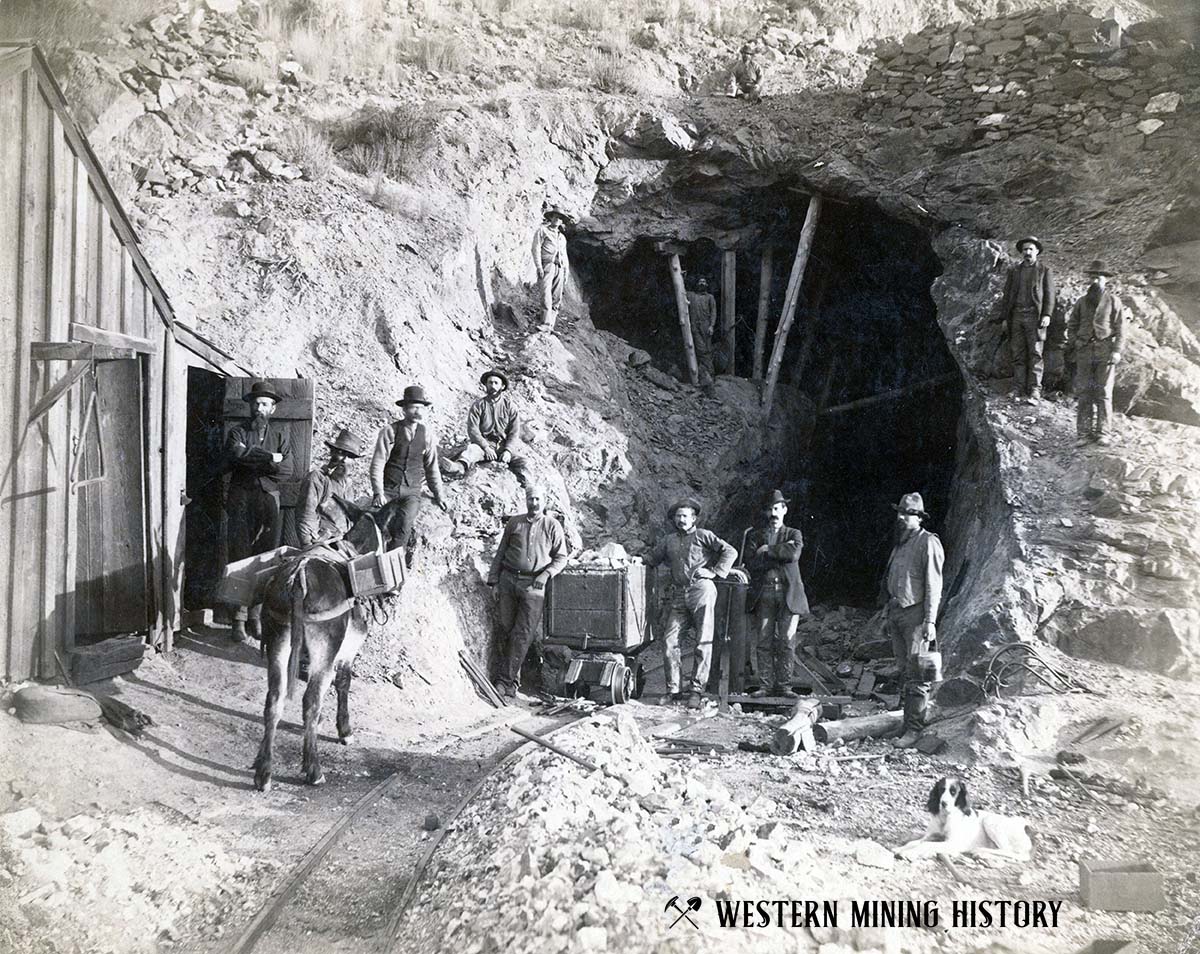
Gold Hill Nevada newspapers were a valuable source of information about Jack Harris
.
1868: Gold Hill Nevada Daily: 21 Nov 1868:
A rumor- a report was current on the streets of Virginia and Gold Hill last evening, that Jack Harris had been killed, I was at Austin within a short time of the difficulty which caused the death of Al Waterman, in Virginia city, on Thursday afternoon. Harris and Waterman had been connected in the robbing of the Wells Fargo and company express, below Silver City some years ago and their almost simultaneous deaths are considered singular coincidences. The rumor however needs confirmation.
Jack was still alive and in addition to his other pursuits he had gotten into politics, not as a candidate but as muscle for the Republicans. Nevada politics at the time was a very rough business and votes were often cast in lead. This was certainly the case in the 1870 Nevada Democratic primary when some Republicans, including Harris, tried to vote with their revolvers.
Carson Daily Appeal Carson Nevada 28 May 1870
Two shooting scraps which took place at the White Pine Democratic primaries is thus alluded to by the News of Monday :
Pistols were drawn twice at the First Ward polls of the Democratic primary election yesterday, the first time between two Republicans who were taking a lively interest on opposite sides, resulting harmlessly. The second affair was between Jack Harris and Charles F. McIntyre both said to be Republicans, the latter having been a candidate on the Republican ticket for delegate to the city convention, resulting in Harris receiving a slight flesh wound in one hand and having a Deringer ball pass through the center of the other. The latter wound is a painful but not a dangerous one, and Dr. Owen, who dressed it, thinks the bones of the band are uninjured. McIntyre used Derringers and Harris a 6-shooter, the ball from the latter entering McIntyre’s hat brim just above the ear and tearing it in the border.
A special committee of the Town was appointed to determine why the Marshal hadn’t made some effort to keep order and perhaps arrest someone.
On May 31, 1870, the newspaper reported:
During the discussion which followed, Marshall O’Keefe appeared, asked and was granted permission to make an explanation : said he heard shots fired, but did not know at the time who fired them, and rushed in, found Jack Harris wounded and took him to his room, thinking it not exactly humane to take a wounded man to prison; did the same thing with Allen when he found him wounded on the street, without stopping to inquire who was to blame.
The committee found this explanation eminently reasonable and indefinitely postponed any action.
In 1871 Jack Harris and others were charged with the murder of William Warnock at Gold Hill Nevada. Jack got off on what in Nevada of that era one could call a technicality:
Gold Dust Daily News 11 May 1871:
Verdict of the coroner’s jury:
Following is the verdict of the coroner’s jury summoned to inquire into the cause of death of William R Warnick. A great amount of testimony was produced, but nothing was elicited which could positively fix the killing on anyone. Three men were said to have fired at the time Warnick fell, and the verdict was rendered in accordance with the facts: “the jury summoned to inquire into the cause of the death of William R Warnick, do find that he came to his death from the effects of a gunshot wound, fired by the hands of some party or parties unknown to the jury.”
Earlier that year Jack and a Major O’Keefe had had words which were, according to the Carson City Nevada newspaper “of a not very pleasant nature” and shots were exchanged but after intercession of friends the combatants reconciled and bellied back up to the bar.

Pioche Nevada was an busy mining town in the 1870s and 1880s
Jack had been in so many scraps in 1871 that the Pioche Nevada Record where Jack had taken up residence felt compelled to set the record straight:
Carson City Daily Appeal August 8, 1871:
The Pioche Record denies that Jack Harris has any trouble there with the vigilance committee; that he has not been hanged, and has had nothing to be hanged for- has not been in jail, and with a single exception has been very quiet since his residence at Pioche.
By May of 1872 however Jack was in the Pioche News again. A fire the year before had burned much of the town and most of the buildings were completely destroyed. The boundaries of downtown lots were in dispute. In the middle of the battle over one valuable contested lot was Jack and his now confederate Nick Rodriguez
From the San Francisco Examiner 7 May 1872:
Now comes on the scene Jack Harris and Nick Rodriguez, who set up their possessory title, backed with six shooters and double barrel shotguns. From early Tuesday night they had stood guard. Wednesday afternoon they caused to be erected a board fence in front and claimed that their lot runs back 100 feet.
Jack was appalled at the slanderous allegation that he was not only a “lot jumper” but a “hired fighter” and claimed in a manifesto published in the newspapers that he “was a law and order man of the first water” but was open “to engagement with responsible parties on the right side of law and justice, if satisfactory inducements are offered.” In other words he would be happy to sell the lot he and Nick had jumped for a reasonable sum. Apparently those “inducements” were offered for Jack’s choice lot by none other than Wells Fargo, one of Jack’s former victims.
Life went on as usual for Jack for a couple of years, there was the shooting at his house of a friend at Jack’s house said to be accidental and just before his death he was charged with grand larceny but he died before the case could come to trial.
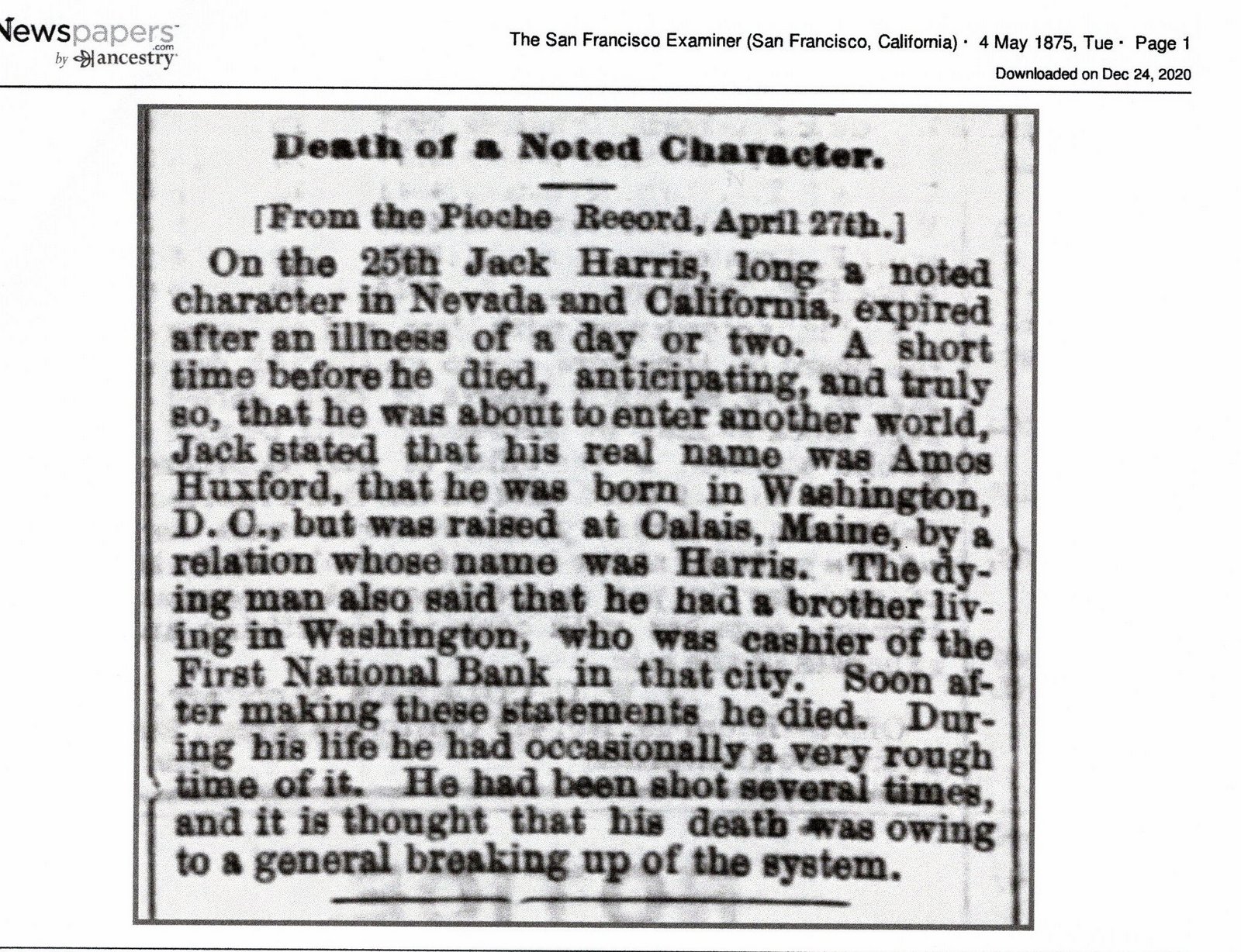
Jack’s death was reported widely throughout the West
San Francisco Examiner May 4, 1875
Death of a Noted Character.
From the Pioche Record, April 37th.
On the 25th Jack Harris, long a noted character in Nevada and California, expired after an illness of a day or two. A short time before he died, anticipating, and truly so, that he was about to enter another world. Jack stated that his real name was Amos Huxford, that he was born in Washington. S. C, but was raised at Calais, Maine, by a relation whose name was Harris. The dying man also said that he had a brother living in Washington, who was cashier of the First National Bank in that city. Soon after making these statements, he died.
During his life he had a very rough time of it. He had been shot several times and it is thought that his death was owing to a general breaking up of his system.
In fact it appears Jack died of lead poisoning. An eyewitness account, published some time later in a history of Pioche, related what we are assured is the true story of his death:
The Death of Jack Harris
Early Pioche, Nevada
“While reading the sketch in the Reno Evening Gazette about Jack Harris and the jumpers in Pioche,” said Henry Morris, “I recalled the facts as given, for I was there at the time, and it also reminded me that Jack Harris was shot and killed while seated on the bootblack stand in front of my shop, just after I had shaved him.” The circumstances attending his death illustrated his aggressive character, and that, as a close to his reckless career, he had at last simply run against the wrong man. In this case, it was a man of singular coolness and courage that had been tried at the risk of torture and death. His name was Muesdorfer, a Russian by birth and one of the earliest Nihilists. The facts became known before he left Pioche that he had attempted to take the life of the Czar but was thwarted by some failure in the plans. He succeeded in making his escape, and landing in San Francisco made his way as far inland as he could. He came to Pioche, and being a skillful assayer, and possessed of scholarly attainments, he soon established himself in a profitable business and was generally esteemed for his gentlemanly character and unobtrusive manner. He was an accomplished linguist and spoke English in a faultless manner, with only a trifling accent that made conversation with him entertaining and not tiresome.
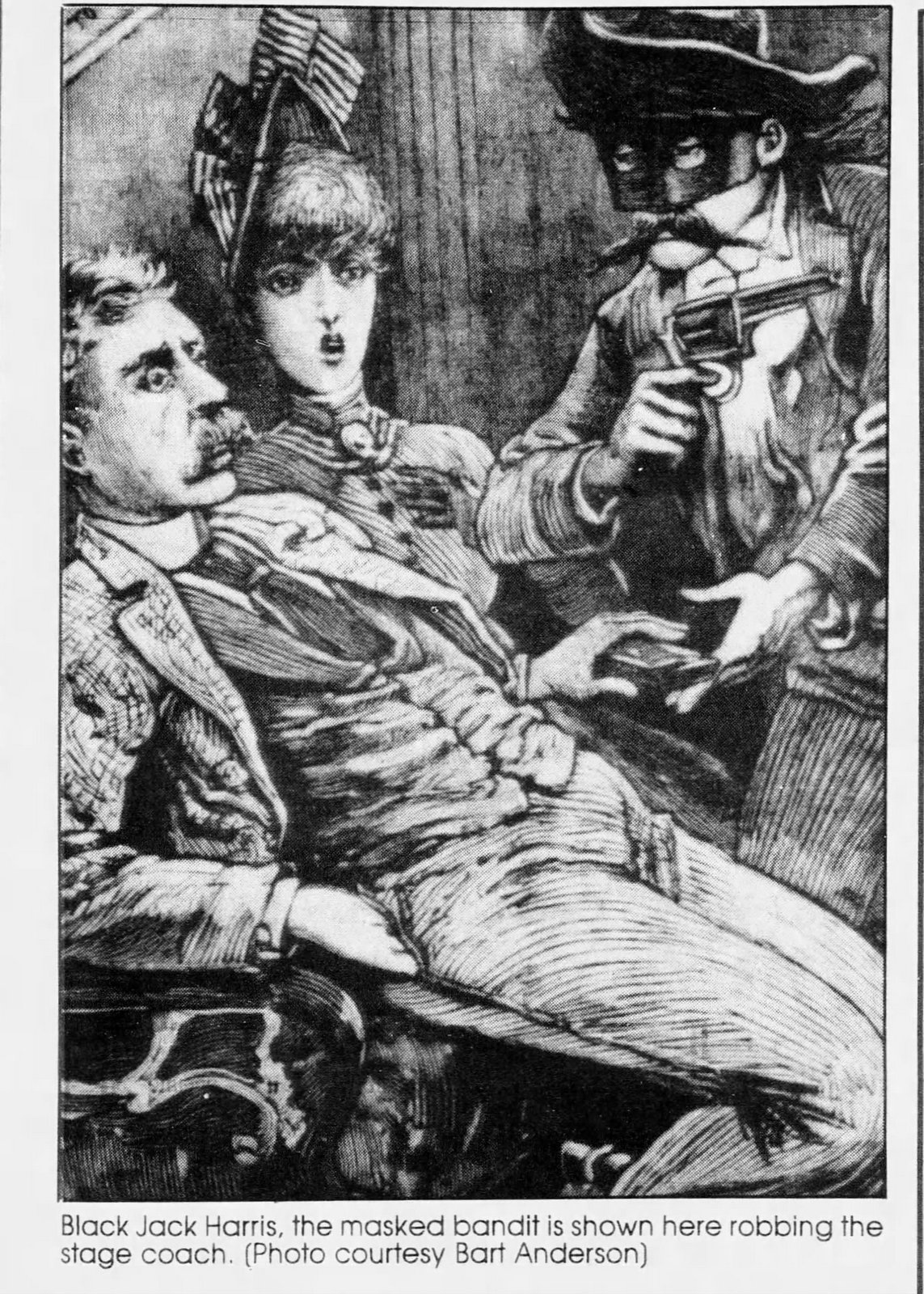
Jack naturally wore a mask and we presume the moustache was fake
Whatever the cause of Jack’s death his legend lives on. Stories of his exploits and apologies for his choice of profession often appeared in the press. A few years after his death an “old-timer” related a story which claims Jack was a pretty decent although practical fellow.
“It was down in Pioche in ’73. when Jack Harris used to hold up the stage coaches, that I first met him. He’s dead now, and what I say in his favor won’t do me any good, but he was a man and a gentlemen all the same that is when he was off the road.
Many a poor broken down tenderfoot he helped out, and many a good sized purse he took from that could afford to lose it.
He held up a stage near Austin once and among the passengers was a judge and his wife. Jack didn’t bother much with the judge, but he ordered the driver to place a cushion on the grass. It was done, and Jack handed the lady out of the coach. He apologized for being compelled to delay her on the journey, and then robbed the other passengers, her husband included. He would not allow any of his pals to molest or search her, but when she asked him to return her husband’s watch, he said politely that business was business, and he had to draw the line somewhere. He drew it at the watch, and some months after the judge was notified where he could purchase it from a fence.
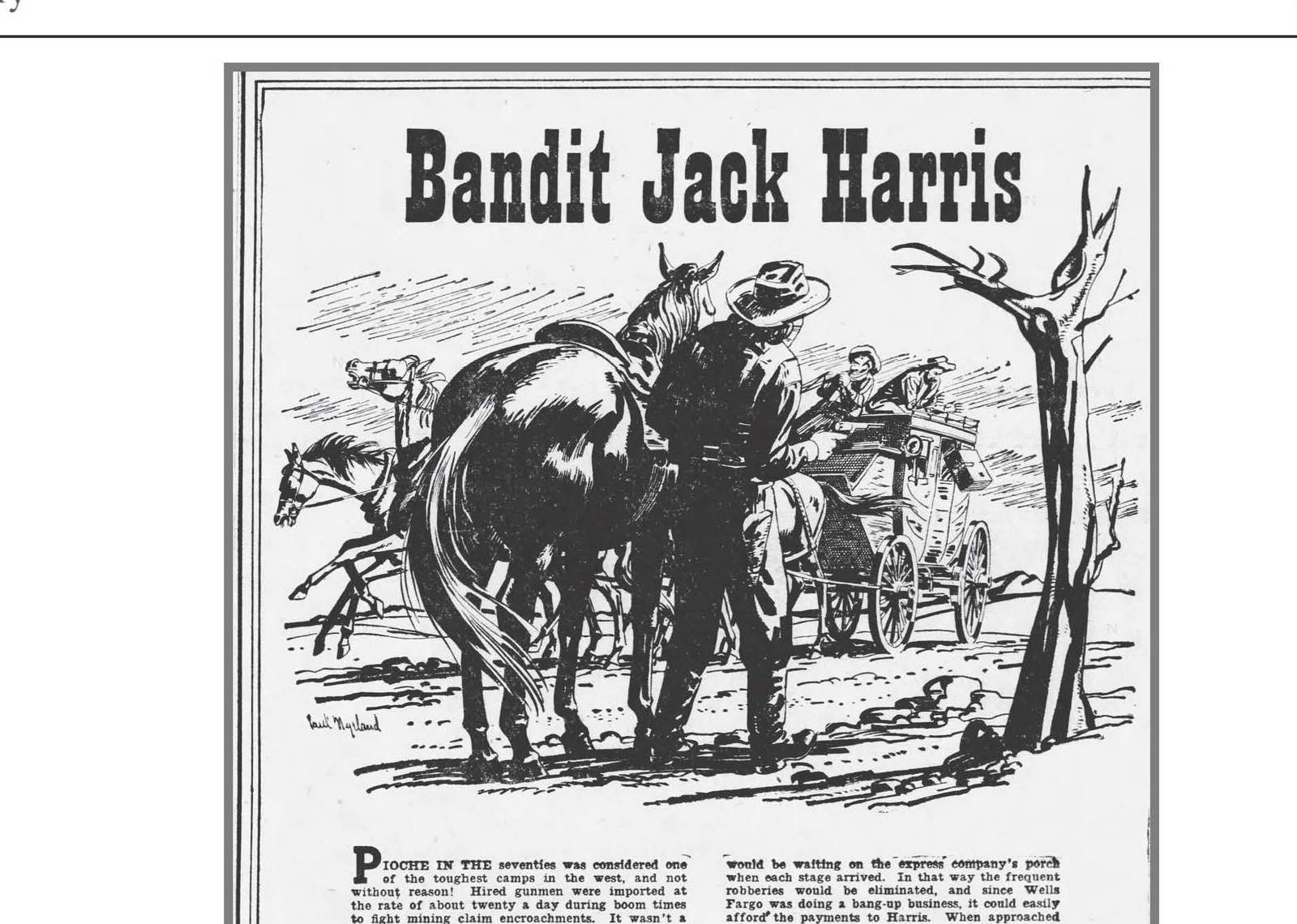
From 1948 Reno Nevada article
